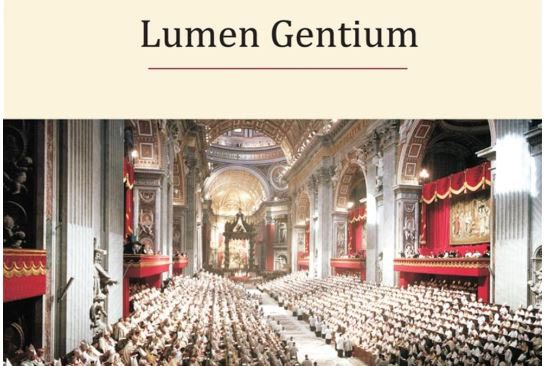"Pope John [XXIII] and Vatican II initiated a profound shift in how one perceives doctrinal authority..." (15:30ff)
- Dr. Richard Gaillardetz, Oblate School of Theology for the Second Annual Louis Vance Chair of Systematic Theology Lecture.
This must be unpacked.
First of all because Pope John elevated the very theologians (and by extension their condemned theses) that were suppressed under Pope Pius XII. These men (Balthasar, Congar, Rahner, de Lubac, Chenu, Ratzinger, etc...) advanced what Fr. Garrigou LaGrange called "Nouvelle Theologie" or a new theology which he concluded led us right back to Modernism, the synthesis of all heresies. Secondly, Pope John in the opening address of Vatican II deliberately set aside all condemnations of error for the life of the council - and this certainly represents a fundamental shift in the 'perception of doctrinal authority...' Which left us with the double whammy of rehabilitating condemned theology and the inability to condemn any errors. What else could this bring but revolution in the "pastorality" (the professor's word) of the Catholic Church?
Scholastic theology was set aside with its emphasis on reality, immutable essences, and concrete manifestations of the divine Being and in its place emerged personalism, phenomenology, and existentialism - all condemned in Pius XII's Humani generis. Thus, experience was elevated above objective truth - including both natural and supernatural theology - in order to reach mythical 'Modern Man' in ways the neoModernists felt were palatable to him. St. Pius X on the danger of building doctrine upon human experience:
"How far off we are here from Catholic teaching we have already seen in the decree of the [first] Vatican Council. We shall see later how, with such theories, added to the other errors already mentioned, the way is opened wide for atheism. Here it is well to note at once that, given this doctrine of experience united with the other doctrine of symbolism, every religion, even that of paganism, must be held to be true. What is to prevent such experiences from being met within every religion? In fact that they are to be found is asserted by not a few. And with what right will Modernists deny the truth of an experience affirmed by a follower of Islam? With what right can they claim true experiences for Catholics alone? Indeed Modernists do not deny but actually admit, some confusedly, others in the most open manner, that all religions are true. That they cannot feel otherwise is clear. For on what ground, according to their theories, could falsity be predicated of any religion whatsoever?"
ON THE DOCTRINES OF THE MODERNISTS
Truly pastoral as opposed to what?
Pius XII? Was his magisterium not 'truly pastoral'?
Does this excitable academic not know that Pope Pacelli's colloquial title was Pastor Angelicus? The angelic pastor?
These guys never come out and say what their theories all purport: the Church under Pius XII was in grave error in praxis if not in doctrine, and the conciliar Pontiffs have corrected centuries of these errors. The facts of history however point to a completely opposite conclusion: the Church was in robust health under Pius XII and has been declining precipitously ever since.


